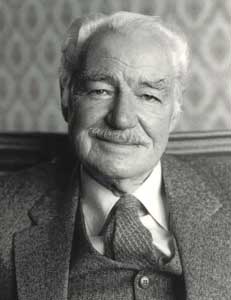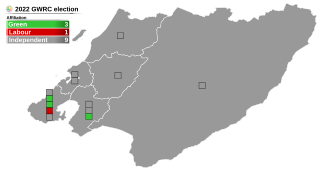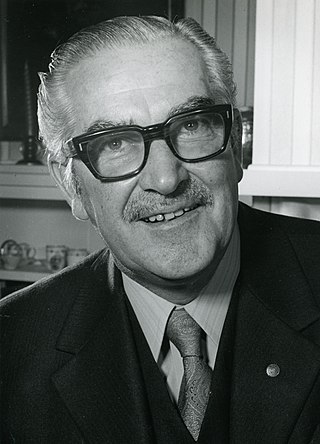
Whitford James Richard Brown was the foundation mayor of Porirua City, a city in the Wellington Region of New Zealand, for 21 years from 1962 to 1983. Previously, Porirua was part of what was then called the Makara County Council. In 1961, the Local Government Commission deemed that Porirua should become a borough. The region had its first elections in October 1962, and, Brown was elected mayor.

The 1968 Wellington City mayoral election was part of the New Zealand local elections held that same year. In 1968, elections were held for the Mayor of Wellington plus other local government positions including fifteen city councillors. The polling was conducted using the standard first-past-the-post electoral method.

The 1995 Wellington local elections were part of the 1995 New Zealand local elections, to elect members to sub-national councils and boards. The Wellington elections cover one regional council, city council, district health board, and various community boards and licensing trusts. The polling was conducted using the standard first-past-the-post electoral method.

The 2022 Wellington Region local elections were held on 8 October 2022 as part of the wider 2022 New Zealand local elections to elect members to sub-national councils and boards. These elections covered one regional council, eight territorial authorities, and various community boards and licensing trusts.

The 1968 Lower Hutt mayoral election was part of the New Zealand local elections held that same year. The elections were held for the role of Mayor of Lower Hutt plus other local government positions including fifteen city councillors, also elected triennially. The polling was conducted using the standard first-past-the-post electoral method.

The 1971 Lower Hutt mayoral election was part of the New Zealand local elections held that same year. The elections were held for the role of Mayor of Lower Hutt plus other local government positions including fifteen city councillors, also elected triennially. The polling was conducted using the standard first-past-the-post electoral method.

The 1962 Porirua mayoral election was part of the New Zealand local elections held that same year. The elections were held for the role of Mayor of Porirua plus other local government positions including ten borough councillors, also elected triennially. The polling was conducted using the standard first-past-the-post electoral method.

The 1965 Porirua mayoral election was part of the New Zealand local elections held that same year. The elections were held for the role of Mayor of Porirua plus other local government positions including ten city councillors, also elected triennially. The polling was conducted using the standard first-past-the-post electoral method.

The 1971 Porirua mayoral election was part of the New Zealand local elections held that same year. The elections were held for the role of Mayor of Porirua plus other local government positions including twelve city councillors, also elected triennially. The polling was conducted using the standard first-past-the-post electoral method.

The 1974 Porirua mayoral election was part of the New Zealand local elections held that same year. The elections were held for the role of Mayor of Porirua plus other local government positions including fifteen city councillors, also elected triennially. The polling was conducted using the standard first-past-the-post electoral method.

The 1980 Porirua mayoral election was part of the New Zealand local elections held that same year. The elections were held for the role of Mayor of Porirua plus other local government positions including fifteen city councillors, also elected triennially. The polling was conducted using the standard first-past-the-post electoral method.

The 1983 Porirua mayoral election was part of the New Zealand local elections held that same year. The elections were held for the role of Mayor of Porirua plus other local government positions including sixteen city councillors, also elected triennially. The polling was conducted using the standard first-past-the-post electoral method.
The 1983 Porirua local elections were part of the 1983 New Zealand local elections, to elect members to sub-national councils and boards. The Porirua elections covered one regional council, city council, hospital board, and various local boards and licensing trusts. The polling was conducted using the standard first-past-the-post electoral method.

The 1986 Porirua mayoral election was part of the New Zealand local elections held that same year. The elections were held for the role of Mayor of Porirua plus other local government positions including sixteen city councillors, also elected triennially. The polling was conducted using the standard first-past-the-post electoral method.
The 1986 Porirua local elections were part of the 1986 New Zealand local elections, to elect members to sub-national councils and boards. The Porirua elections cover one regional council, city council, hospital board, and various local boards and licensing trusts. The polling was conducted using the standard first-past-the-post electoral method.

The 1989 Porirua mayoral election was part of the New Zealand local elections held that same year. The elections were held for the role of Mayor of Porirua plus other local government positions including thirteen city councillors, also elected triennially. The polling was conducted using the standard first-past-the-post electoral method.
The 1989 Porirua local elections were part of the 1989 New Zealand local elections, to elect members to sub-national councils and boards. The Porirua elections cover one regional council, city council, hospital board, and various local boards and licensing trusts. The polling was conducted using the standard first-past-the-post electoral method.

The 1992 Porirua mayoral election was part of the New Zealand local elections held that same year. The elections were held for the role of Mayor of Porirua plus other local government positions including thirteen city councillors, also elected triennially. The polling was conducted using the standard first-past-the-post electoral method.
The 1992 Porirua local elections were part of the 1992 New Zealand local elections, to elect members to sub-national councils and boards. The Porirua elections cover one regional council, city council, hospital board, and various local boards and licensing trusts. The polling was conducted using the standard first-past-the-post electoral method.

The 1995 Porirua mayoral election was part of the New Zealand local elections held that same year. The elections were held for the role of Mayor of Porirua plus other local government positions including thirteen city councillors, also elected triennially. The polling was conducted using the standard first-past-the-post electoral method.









